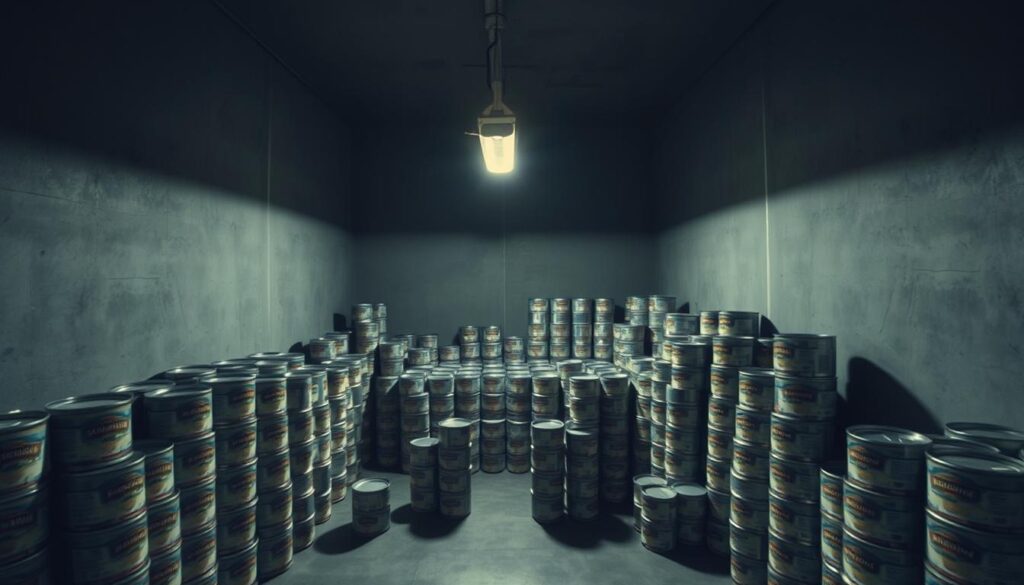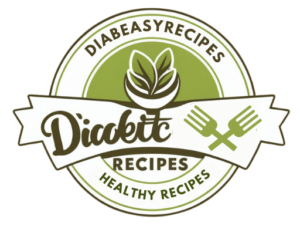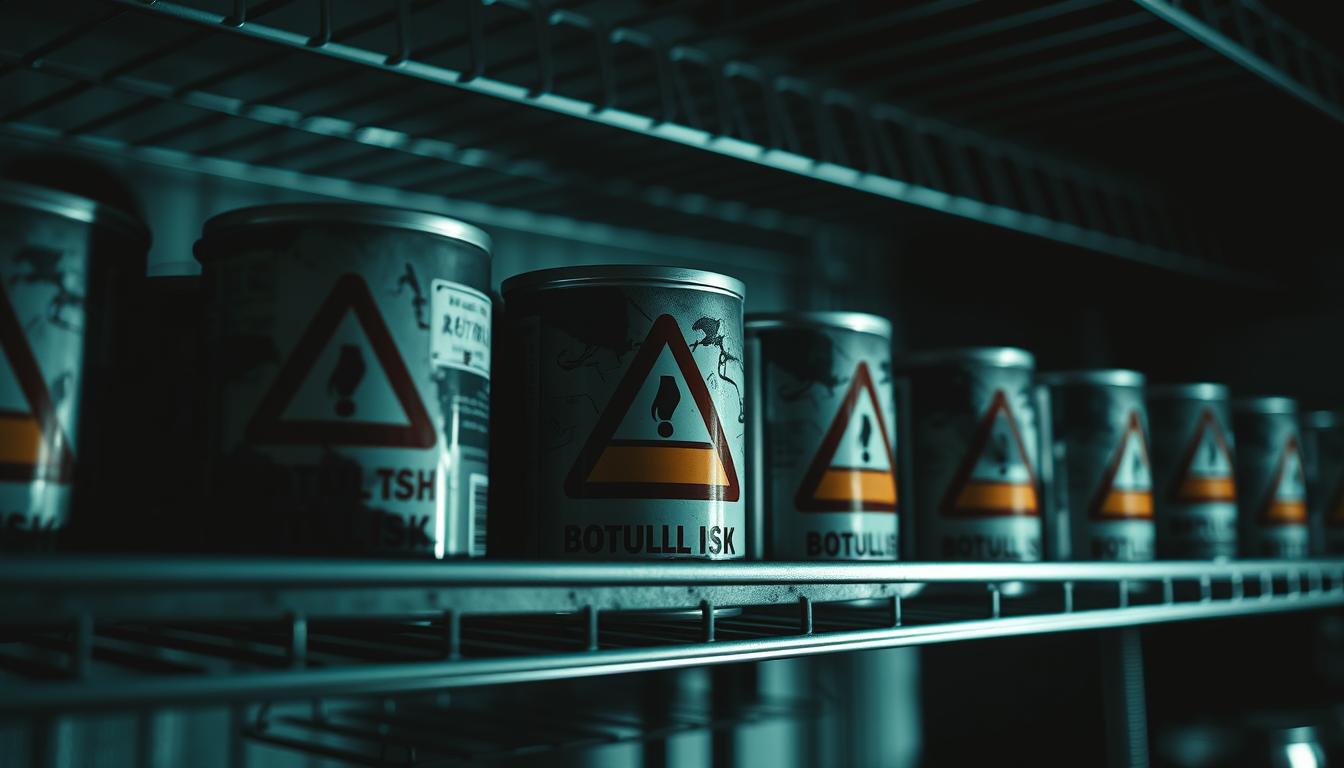A recent recall of canned tuna due to botulism risk is a wake-up call for food safety. Tri-Union Seafoods has issued a recall for several brands. This includes Genova, Van Camp’s, H-E-B, and Trader Joe’s, in both 5-ounce and 7-ounce cans.
As a consumer, knowing about this recall is key to keeping you and your family safe. The recall is due to a manufacturing flaw that could let Clostridium botulinum into the cans. This bacteria can cause severe illness, making food safety a top priority.
The affected products were sold at places like Trader Joe’s, Costco, and Walmart. They were shipped to many states. If you bought any of these, act fast to avoid getting sick. This is crucial for keeping everyone safe and preventing foodborne illnesses.
Table of Contents
Breaking News: Botulism Risk Canned Tuna Recall Announced
A recent announcement has been made about a voluntary recall of canned tuna. This is due to potential botulism contamination risks. Several brands, including Genova, Van Camp’s, H-E-B, and Trader Joe’s, are affected. These products were sold in various retailers across the United States. It’s important for consumers to stay informed about canned tuna recall updates to ensure their safety.
The recall was issued because of a manufacturing defect in the “easy open” pull tab. This defect may lead to compromised seals and potential contamination with Clostridium botulinum. This bacteria can cause botulism, a rare but serious illness. So far, no reports of illness related to the recalled products have been reported.
Affected Brands and Products
The affected brands include:
- Genova
- Van Camp’s
- H-E-B
- Trader Joe’s
These brands were sold at major grocery stores. Places like Costco, Trader Joe’s, Kroger, Safeway, Harris Teeter, Walmart, and Publix carried them.
Recall Date and Scope
The recall was announced on February 7. The FDA published the recall notice the following week. The recall involves canned tuna sold in 26 states and the District of Columbia.
Distribution Areas
The affected products were distributed across multiple states. This includes Texas, Florida, Georgia, and numerous others. Consumers are advised to check their purchases. If they have any of the recalled products, they should return them for a refund or dispose of them.
It’s crucial to stay informed about foodborne illness outbreak and take necessary precautions. By staying up-to-date with the latest canned tuna recall updates, you can protect yourself and your loved ones from potential botulism contamination risks.
| Brand | Product Size | Best If Used By Date |
|---|---|---|
| Genova | 5 oz | 2027-2028 |
| Van Camp’s | 5 oz, 7 oz | 2027-2028 |
| H-E-B | 5 oz, 7 oz | 2027-2028 |
| Trader Joe’s | 5 oz, 7 oz | 2027-2028 |
How to Identify Affected Tuna Products
To keep yourself safe, it’s important to know how to spot tuna products that have been recalled. Look at the can codes and “Best if Used By” dates on the bottom of the cans. The recalled tuna has specific lot codes from S83N 45K to S90N D2N and “Best if Used By” dates from 12/2/2027 to 1/24/2028.
Here are some food safety guidelines to follow when checking your canned tuna:
- Make sure the brand name and product type match
- Check the lot code and “Best if Used By” date
- Look for any signs of damage or tampering
By following these steps, you can avoid botulism risk prevention and ensure your tuna is safe. Always follow food safety guidelines when handling and storing canned tuna.
For more details on the canned tuna recall identification, visit the FDA website or contact the manufacturer. Stay safe and informed to protect yourself and your loved ones from botulism risk.
| Brand Name | Product Type | Lot Code | Best if Used By Date |
|---|---|---|---|
| Genova | Canned Tuna | S83N 45K | 12/2/2027 |
| Van Camp’s | Canned Tuna | S85N 12K | 1/1/2028 |
| H-E-B | Canned Tuna | S90N D2N | 1/24/2028 |
| Trader Joe’s | Canned Tuna | S88N 34K | 12/15/2027 |
Understanding the Dangers of Botulism Contamination
Botulism is a serious illness that can be life-threatening if not treated promptly. As a consumer, you should know about the risks of botulism in certain foods, like canned tuna. Signs of contamination include muscle paralysis, trouble breathing, and swallowing issues.
To prevent botulism poisoning, act fast if you think you’ve been affected. Seek medical help and follow good food handling and storage. Knowing the risks and symptoms helps protect you and your loved ones.
- Difficulty swallowing
- Muscle weakness
- Double vision
- Drooping eyelids
- Blurry vision
- Slurred speech
- Difficulty breathing
Symptoms can show up hours to days after eating contaminated food. If you have any, get medical help right away.
Understanding botulism dangers and taking precautions can lower your risk. Always check “Best if Used By” dates and UPC numbers on canned tuna. Follow good food handling and storage to avoid botulism and foodborne illness.
Immediate Actions for Consumers
If you bought the canned tuna recall products, act fast to stay safe. The food safety emergency is serious and needs quick action to stop botulism outbreak. Return the items to the store for a refund or throw them away right away.
Always follow food safety guidelines when dealing with canned tuna. Look through your pantry and fridge for the recalled items. You can also visit the store’s website for details on the canned tuna recall response.
To avoid botulism outbreak, keep canned tuna safe. Here’s what you can do:
- Check the product label for any signs of damage or tampering
- Store canned tuna products in a cool, dry place
- Follow the recommended storage and handling instructions
By taking these steps, you can help stop botulism outbreak and keep yourself safe. Always put food safety first and act quickly in a food safety emergency.
| Product | Recall Status | Actions |
|---|---|---|
| Canned Tuna | Recalled | Return or Dispose |
Verification Process for Your Canned Tuna
To keep you safe, it’s important to check the lot numbers and manufacturing dates on your canned tuna. This step is key in the food safety checks process. It helps you know if your tuna is part of a recall. Look for this info on the bottom or top of the can, in small print.
When assessing the botulism risk, verifying your tuna’s status is crucial. Compare the lot numbers and manufacturing dates with the recall list from the manufacturer or FDA. This list has UPC codes, can codes, and “Best if Used By” dates for recalled tuna.
You can also use online tools to check your tuna’s status. Just enter the UPC code or can code to see if it’s recalled. Taking these steps ensures your tuna is safe to eat and lowers the risk of botulism contamination.
Remember, food safety checks are vital to stop foodborne illnesses. By being proactive and checking your tuna, you protect yourself and your family. Always prioritize canned tuna verification and botulism risk assessment for a safe meal.
Safety Guidelines for Handling Suspected Products
When you think a canned tuna product might be bad, it’s key to handle it safely. You must not break the can’s seal to avoid contamination. Clostridium botulinum, the bacteria behind botulism, can be deadly, so be careful.
Keep the suspected tuna in a safe place, like a canned tuna storage area. This way, you can return it to the store or throw it away safely. Always wash your hands after touching it and clean any surfaces it might have touched.
Here are some extra tips for handling suspected products:
- Check the products for any signs of damage or tampering
- Do not consume the products if you are unsure about their safety
- Return the products to the store for a full refund or contact the manufacturer for assistance

By following these food safety handling tips, you can prevent botulism contamination prevention. Always focus on canned tuna storage and handling to stay safe.
| Product | Lot Number | Manufacturing Date |
|---|---|---|
| Genova | 12345 | February 1, 2022 |
| Van Camp’s | 67890 | January 15, 2022 |
Refund and Replacement Procedures
If you bought a recalled canned tuna, you can get a full refund or a new product. To start, return the product to where you bought it. Or, you can reach out to Tri-Union Seafoods for a new one.
To return, you need to check a few things. Look for the UPC and can code on the label. Also, check the best-by date on the bottom or side of the can.
Return Process Steps
- Verify the product’s UPC and can code
- Check the best-by date
- Provide proof of purchase
- Return the product to the retailer or contact Tri-Union Seafoods for a replacement
You might also get a canned tuna recall refund or food safety reimbursement. This is because of the botulism outbreak compensation. Make sure to follow the steps and provide the needed documents for a smooth process.
By following these steps, you can get a refund or a new product. This helps avoid botulism outbreak compensation claims. Always check the label and UPC before eating canned tuna.
Emergency Contact Information
In case of a food safety emergency, knowing who to call is key. For canned tuna recall issues, reach out to Tri-Union Seafoods or the FDA. They offer help and support. The food safety emergency contact numbers can guide you on what to do with suspect products and how to avoid botulism outbreaks.
For canned tuna recall support, call Tri-Union Seafoods at (833) 374-0171. They’re open Monday to Friday, 9 a.m. to 5 p.m. EST. You can also check the FDA website for details on the recall and botulism outbreak hotline numbers.
It’s important to have a plan ready for food safety emergencies. Here are some steps to take:
- Contact Tri-Union Seafoods or the FDA for emergency help and support
- Visit the FDA website for more info on the recall and food safety emergency contact numbers
- Follow proper handling and storage to prevent botulism outbreaks
Being prepared and knowing who to call can keep you and your loved ones safe in a food safety emergency.
| Company | Contact Number | Hours of Operation |
|---|---|---|
| Tri-Union Seafoods | (833) 374-0171 | Monday – Friday, 9 a.m. – 5 p.m. EST |
| FDA | Visit FDA website for more information | N/A |
Signs of Foodborne Botulism to Watch For
It’s important to know the signs of foodborne botulism, especially with the canned tuna recall. Foodborne botulism symptoms can be mild or severe and are dangerous if not treated. Look out for trouble swallowing, muscle weakness, double vision, and breathing issues.
With the canned tuna recall health risks, watch for botulism symptoms. If you’ve eaten recalled products and notice these signs, get medical help right away:
- Difficulty swallowing or speaking
- Muscle weakness or paralysis
- Double vision or blurred vision
- Drooping eyelids
- Difficulty breathing
Symptoms of foodborne botulism can show up 12 to 36 hours after eating bad food. If you’re feeling these symptoms, get medical help fast.

In short, knowing the signs of foodborne botulism is key to staying safe. By spotting the botulism poisoning signs and acting quickly, you can keep yourself and your family safe from canned tuna recall health risks.
| Symptom | Description |
|---|---|
| Difficulty swallowing | Feeling of food getting stuck in the throat |
| Muscle weakness | Feeling of weakness or paralysis in the muscles |
| Double vision | Seeing double or blurred vision |
Preventive Measures for Future Safety
To keep food safe, it’s key to handle and store canned tuna right. Store them in a cool, dry spot and check expiration dates often. These steps help lower the chance of botulism contamination prevention.
For canned tuna storage guidelines, keep them away from sunlight, moisture, and heat. Also, inspect cans for damage or swelling before eating.
- Always check the expiration dates of canned tuna products before purchasing them
- Store canned tuna products in a cool, dry place, such as a pantry or cupboard
- Keep canned tuna products away from direct sunlight and heat sources
- Check the cans for any signs of damage or swelling before consuming them
By following these food safety prevention tips and botulism contamination prevention guidelines, you can help ensure the safety of your food and reduce the risk of foodborne illnesses. Remember to always prioritize canned tuna storage guidelines and handle canned tuna products with care to prevent contamination and spoilage.
Updates from Health Authorities
To keep up with the canned tuna recall information and food safety updates, check the FDA and CDC websites. They offer the latest botulism outbreak news and safety tips.
The FDA and CDC are teaming up to give you the latest recall news. Visit their sites for food safety updates and botulism outbreak news.
Recent Statements
The FDA says the recall is a safety step to avoid botulism contamination. The CDC has shared tips to lower the risk of foodborne illness.
Guidelines and Recommendations
The CDC suggests checking your canned tuna for the affected lot numbers. Return them to the store for a refund. For more on the recall and canned tuna recall information, visit the FDA and CDC websites.
By staying informed and following health advice, you can protect yourself and your family. This helps avoid botulism contamination and foodborne illness.
Conclusion
The canned tuna recall is over, but we must stay alert to protect our health. The danger of botulism has been handled, but food safety is always key. By staying informed and proactive, we can keep our families safe and avoid future food illnesses.
This tuna recall is a wake-up call to check what we eat. It’s a chance to learn and improve our food safety habits. Check expiration dates, look for damage, and use online tools to check your food.
Your health and your family’s should always come first. Stay alert, trust your gut, and choose caution with food. Together, we can make our food system safer for everyone.
FAQ
What is the reason for the canned tuna recall?
The recall is due to a problem with the “easy open” can lid. This issue may cause the seal to fail, leading to contamination. This could result in botulism.
Which brands and products are affected by the recall?
Genova, Van Camp’s, H-E-B, and Trader Joe’s are among the brands affected. The recalled products were sold in many places across the U.S.
How can I identify the recalled canned tuna products?
Look at the can codes and “Best if Used By” dates on the bottom. This will tell you if your tuna is part of the recall.
What is the risk of botulism contamination in the recalled canned tuna?
Botulism is a serious illness that can be deadly if not treated quickly. It’s caused by bacteria that can make muscles weak, breathing hard, and swallowing tough.
What should I do if I have purchased the recalled canned tuna products?
If you bought the recalled tuna, return it for a refund or throw it away. Always handle and store canned tuna safely.
How can I verify if my canned tuna is part of the recall?
Check the lot numbers and dates on your cans. You can also use online tools to see if your tuna is recalled.
What should I do if I suspect my canned tuna is contaminated?
To avoid contamination, follow safe handling and storage steps. If you think your tuna is bad, contact the maker or local health officials for help.
How can I get a refund or replacement for the recalled canned tuna products?
Return the tuna to the store for a refund or contact Tri-Union Seafoods for a new product. Follow the return steps and provide needed documents for a smooth process.
What are the signs and symptoms of botulism poisoning?
Signs include muscle weakness, trouble breathing, and swallowing issues. If you have these symptoms, get medical help right away. Quick treatment is key to avoiding serious problems.
How can I prevent future botulism contamination in canned tuna products?
To keep food safe, handle and store tuna correctly. Always check expiration dates and stay updated on food safety news.
Source Links
- Canned tuna sold at Trader Joe’s, Costco, Walmart and more recalled due to botulism risk
- Canned tuna sold at Trader Joe’s recalled due to potential botulism contamination
- Canned tuna sold at Costco and Trader Joe’s recalled over botulism risk
- FDA Alert: Canned Tuna Sold at Trader Joe’s, Costco, and More Recalled Over Botulism Risk
- Canned tuna at Trader Joe’s, Walmart and Costco recalled over botulism risk
- Tri-Union Seafoods Issues Recall of Select Genova®, Van Camp’s®, H-E-B and Trader Joe’s® Tuna Cans Due to Clostridium Botulinum Risk
- Canned Tuna Sold At Walmart, Trader Joe’s, Costco Recalled For Botulism Risk
- Canned tuna sold at Trader Joe’s, Walmart and more retailers voluntarily recalled due to potential botulism contamination
- Canned Tuna Recall: Botulism Risk at Major Retailers – Karmactive
- Canned Tuna Recalled in 26 States—Check Your Pantry Now!
- Several tuna products sold at Costco, Trader Joe’s and more recalled
- Canned tuna sold at Trader Joe’s, Walmart recalled. Here’s what you need to know
- Canned Tuna Recalled from Costco, Trader Joe’s, Walmart, and Other Stores
- Canned tuna sold at Costco, Trader Joe’s recalled over botulism risk
- Canned tuna sold at supermarkets, including Trader Joe’s and Walmart, recalled due to botulism risk
- Tuna Recall: Canned Tuna Sold at Trader Joe’s, Costco and More Recalled Over Botulism Risk
- Canned tuna sold by major U.S. grocers recalled over botulism concerns
- Canned tuna sold in Florida recalled over risk of deadly food poisoning – The Times of India
- America recalls canned tuna over botulism risk, FDA issues consumer warning | The Express Tribune
- Fatal Food Poisoning Risk Prompts Canned Tuna Recall In MI
- Tuna Recall: Canned Tuna Sold at Trader Joe’s, Costco and More Recalled Over Botulism Risk
- Canned Tuna Recall 2025: Costco, Walmart, Trade Joe’s, and Other Retailers Stand Cautious!
- Canned Tuna Sold At Costco, Trader Joe’s, Walmart Recalled Over Botulism Risk
- Costco, Trader Joe’s, and More Recall Canned Tuna Due to Potential Botulism Risk
- Canned tuna sold at Trader Joe’s, Costco, Walmart and more recalled due to botulism risk
- Botulism Risk Prompts Tuna Recall Now In Minnesota, Wisconsin

